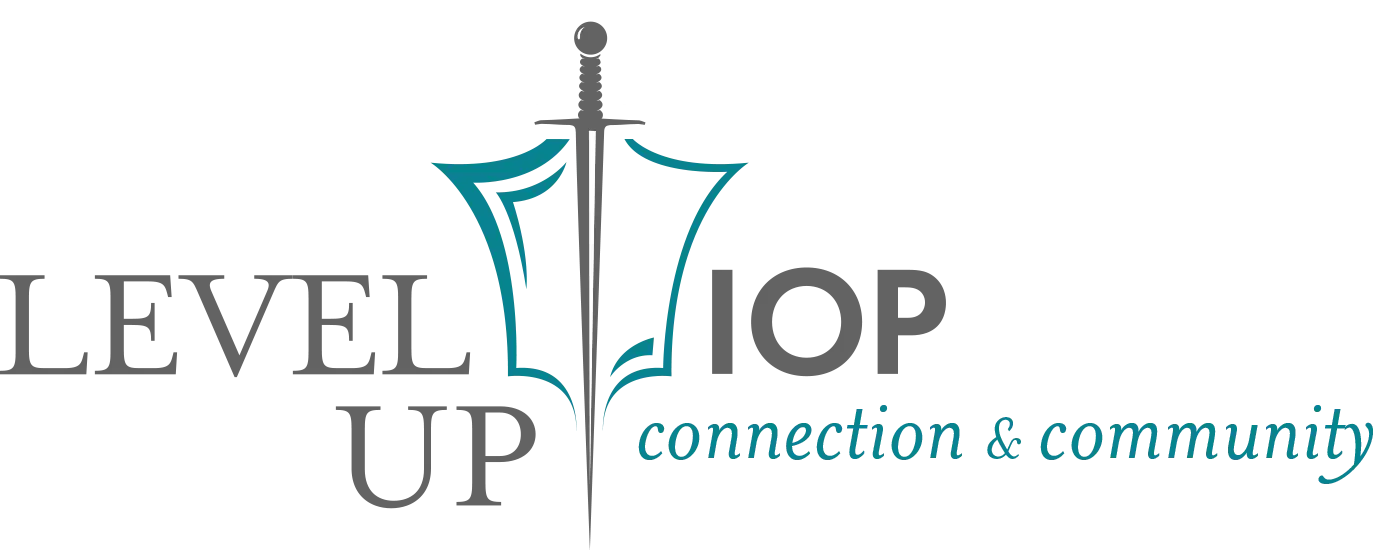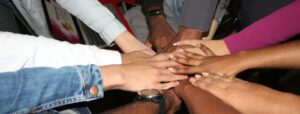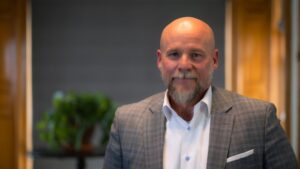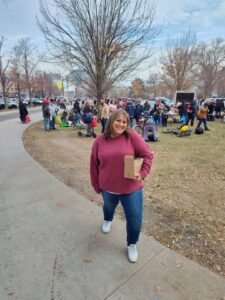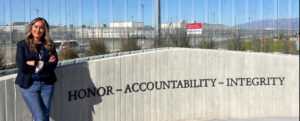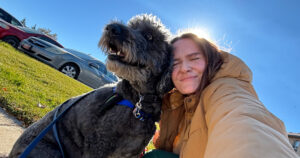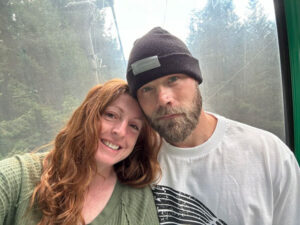A Heartfelt Thank You to Richie Wilson of Fit to Recover for His Inspiring Visit to Our Level Up IOP Group
Level Up IOP is dedicated to helping individuals journey toward personal growth and recovery.
One of the most impactful ways we do this is by bringing inspiring voices into our community.
Recently, our Level Up IOP Substance Use Disorder (SUDC) Group had the privilege of welcoming Richie Wilson from Fit to Recover (FTR) to join us.
Richie’s story, journey, and commitment to helping others live healthier, balanced lives left a lasting impression on us all.
Table of Contents
For those unfamiliar with Richie Wilson or Fit to Recover, they have made a powerful impact in the recovery and wellness community here in Utah.
Founded in 2015 by Ian Acker, Fit to Recover is more than just a gym; it’s a sanctuary for people in recovery to find their footing, health, and community.
FTR has dedicated itself to providing those recovering from addiction with resources not only to stay clean but to thrive in every aspect of life—physical, emotional, and social.
Richie’s role within the recovery movement has been transformative.
It aligns with our mission at Level Up IOP, where we strive to empower individuals to overcome their challenges and step into their potential.
Richie Wilson: A Journey of Resilience and the Power of Community at Fit to Recover
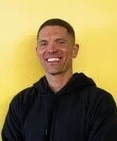
Richie Wilson’s story is one of resilience, personal growth, and the transformational impact of community.
Recently, Richie sat down for a podcast interview and took listeners on a journey through his life—from his early struggles with anxiety and addiction to his role today as a leader at Fit to Recover (FTR), a unique recovery center in Utah.
A Long Road to Sobriety
Richie has been sober for over four years now, with his sobriety date marked in April 2020.
But his journey didn’t start there; it began in 2006 when he first tried to get sober.
Like many in recovery, Richie faced years of treatment, setbacks, and self-discovery.
Through it all, he has grown into a mentor and leader at FTR, a place he calls one of his “favorite places” and recommends wholeheartedly to anyone in the Salt Lake area or beyond.
Fit to Recover isn’t just a gym; it’s a vibrant community offering over 130 classes weekly, from fitness workouts to art nights and dance sessions.
Richie describes it as a space where “everyone is welcome,” where people can hang out, connect, and build new friendships.
For Richie, this community has been essential in his recovery, helping him rebuild his life on solid and supportive foundations.
Roots of His Struggle
Richie’s story starts long before he struggled with addiction.
As the fifth of six children, Richie had a close-knit family.
His childhood began in Salt Lake City, but when he was five, his family moved to Seattle, where his early years were, as he describes them, “magical.”
Those years were filled with the excitement of Seattle’s sports scene and a happy family life.
But everything changed when Richie was around twelve or thirteen, and his family moved back to Utah.
This move was, in his words, “absolutely traumatic.”
It uprooted him from his friends and the life he knew in Seattle.
Struggling to fit in and feeling out of place, Richie felt isolated and anxious.
“I was like a hornet’s nest inside,” he recalls, describing the anxiety and body image issues he faced during his junior high years.
These feelings compounded over time, eventually leading him to experiment with substances as a way to numb his emotional pain.
Early Encounters with Substance Use
By high school, Richie’s life had taken on a duality.
While he excelled as an athlete, playing football and basketball, he secretly began experimenting with substances.
This was especially true after a life-changing accident at Lake Powell, where he shattered his tailbone after jumping off a cliff.
The injury led him to the hospital, where he was introduced to opioids—a moment that would leave a lasting impression.
“The pain was gone, and so was the emotional pain,” he recalls.
For Richie, opioids provided instant comfort and relief from both his physical and emotional struggles, a “warm blanket” that masked his internal pain.
The dual life continued throughout high school as he juggled his identity as a standout athlete and a partier.
Although he kept his struggles hidden from most people, Richie’s early experimentation with substances began a pattern that would follow him into adulthood.
A Path Through Treatment and Learning from Setbacks
After high school, Richie attempted to follow in his family’s footsteps by serving a mission in South Carolina.
However, a severe car accident on the first day of his mission brought him face-to-face with opioids once again.
This time, he found himself using pain medication daily, hiding his addiction from those around him.
Though he finished his mission, Richie returned home struggling with addiction.
His attempts to continue functioning while hiding his dependence on opioids began to unravel.
The years that followed were marked by numerous treatment stays and relapses, with Richie entering rehab as early as 2006.
At times, he felt like no one truly understood his struggles.
“I thought I was unique, that my story was different,” he reflects.
This mindset, often referred to as “terminal uniqueness” in recovery circles, kept him isolated, making it harder to accept help and fully commit to change.
Despite repeated setbacks, Richie remained determined.
With each attempt at recovery, he learned more about himself.
Over time, he began understanding the importance of community and self-compassion in his journey.
The Turning Point: Finding Fit to Recover
After years of battling addiction, Richie found a supportive community at Fit to Recover.
FTR is built on four pillars—fitness, nutrition, creative arts, and community service—providing a holistic approach to recovery.
Here, Richie discovered that recovery wasn’t just about quitting substances; it was about rebuilding one’s identity, finding new passions, and connecting with others who understood his journey.
Richie speaks highly of FTR’s inclusive atmosphere, emphasizing that it’s “a place where everyone is welcome.”
There’s something for everyone, from fitness classes to poetry nights and even rap ciphers on Fridays.
FTR offers a safe space where people can find support, no matter where they are in their recovery journey.
As a nonprofit, FTR also provides scholarships and sliding-scale payments, ensuring that financial constraints don’t become a barrier to recovery.
Daily Habits for Lasting Recovery
Richie’s journey has taught him that recovery is a daily commitment.
For him, one key to staying sober is service.
“Every single day, I look to serve somebody else,” he says, explaining that helping others keeps him grounded and connected.
He strives to “spread the light and allow someone else to turn their own light on too.”
For Richie, these small acts of kindness are more than just gestures—they’re essential to his healing and a way to give back to the community that has supported him.
Exercise has also become a cornerstone of Richie’s routine.
“Moving my body is like a cheat code for me,”
he shares, noting how physical activity helps him manage his mental health and keep depression at bay.
FTR’s approach to fitness emphasizes support over competition, providing a space where people can workout together without pressure or judgment.
Looking Forward with Hope and Gratitude
Today, Richie is more than four years sober and a guiding force at Fit to Recover.
He credits FTR with helping him unlock his potential and find purpose.
Richie’s story is a testament to the power of resilience, community, and self-discovery, and he continues to inspire others by sharing his journey.
The Utah recovery community is lucky to have someone like Richie—a compassionate leader who knows firsthand the struggles of addiction and the importance of connection in recovery.
His commitment to helping others find their way makes him a beacon of hope for anyone struggling with addiction.
Richie’s story serves as a reminder that, with support and determination, it’s possible to rise above even the most challenging circumstances and build a life filled with purpose, community, and healing.
Thank you, Richie, for all that you do.
